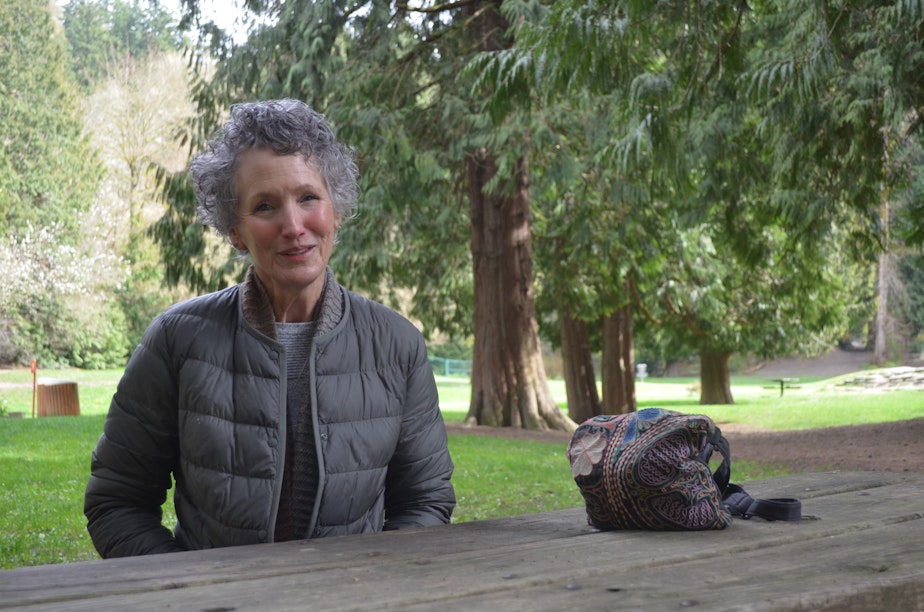Could a psychedelic trip help burned out health care workers cope? This scientist thinks so

The stress of the pandemic has left many health care workers exhausted, depressed, and on the verge of quitting their jobs — or worse.
One scientist has proposed a radical solution for them: Taking psilocybin, the psychedelic compound found in magic mushrooms.
A survey of more than 700 U.S. health care workers and first responders found that the vast majority are in the clinical range for depression and anxiety, and many are in the clinical range for post-traumatic stress disorder. The survey, which is ongoing, asks health care workers if they’re having thoughts of self-harm or that life is not worth living — and one in four says yes.
Tony Back, an oncologist at the University of Washington, thinks he knows of something that could help: psilocybin, the psychedelic compound found in magic mushrooms. So he launched a study through the UW School of Medicine to do just that: to give psilocybin to health care workers who are struggling with burnout and depression in therapist-mediated sessions.
Back thinks the psilocybin can help in two important ways.
First, he said, psilocybin offers a kind of reset.
“Psilocybin disrupts all the kind of ruminative over-and-over-and-over thoughts that you’re having, which for a doctor or nurse might be, you know, ‘Nothing I do ever works; I’m not doing anybody any good; I should just quit,’” Back said.
Sponsored
He also said that psilocybin can give health care workers the chance to process the trauma and the grief of the past two years.
Back added that a lot of health care workers have been so busy caring for patients, they haven’t had the time or bandwidth to think through and come to terms with everything they’ve seen.
To get through the day, he said, a lot of doctors and nurses have had to “just kind of turn themselves off, " Back said. "And it turns out, when you do that ... you start to feel numb and then you can’t stop feeling numb. You feel like a zombie. In the long term, it can mean that you are just really disconnected from everything.”
Both numbness and episodes of panic are hallmarks of post-traumatic stress disorder.
Psilocybin “releases that kind of top-down control that your brain can have on your emotions,” Back said. “It allows you just to feel those feelings … and then you realize that you can feel all of them and it actually won’t destroy you.”
Sponsored
Participants in Back’s study, which is ongoing, initially undergo a couple of psychotherapy sessions to prepare. They then take psilocybin while two therapists guide them through the experience for up to four hours or more. Then they have a few more psychotherapy sessions to help them process what they saw and felt.
Back said his study was inspired by previous research looking at psilocybin as treatment for the anxiety and depression that can follow a cancer diagnosis.
One of the participants in that earlier research was one of Back’s patients, Kerry Pappas, a retired nurse practitioner who lives in Mukilteo.
In 2013, Pappas was diagnosed with lung cancer. Pappas said her diagnosis paralyzed her; the thought that the cancer might come back prevented her from making plans or enjoying life. Pappas’ family was moving across the country to the Seattle area, but, because of her diagnosis, Pappas couldn’t imagine joining them.
“It kind of started taking over my life,” she said. “I couldn’t move forward.”
Sponsored
So Pappas enrolled in a study that treated her fear of death with psilocybin.
During her treatment, Pappas said she found herself in an ancient environment, where men with pickaxes were chopping up huge boulders.
“And then, all of a sudden, out of the rocks came a jewel, and it represented myself,” she said. “And in the meantime, I’m getting a loud booming ‘voice,’ I’ll call it. It was saying, ‘Right here, right now,’ over and over and over and over again.”
Pappas said the experience helped unstick her and teach her to live in the moment instead of fearing her death. She was able to make that cross-country move with her family and go back to enjoying her life, even when the cancer came back.
Tony Back said he hopes the health care workers enrolled in his study will have a breakthrough similar to what Pappas experienced.
Sponsored
Psilocybin has been positioned by some as the next big thing in mental health care, with researchers looking into its potential to treat everything from depression to PTSD to substance use. But some researchers caution that there’s still a lot we don’t know about using psilocybin to treat various mental health conditions.
Simon Goldberg is a psychology professor at the University of Wisconsin in Madison. He’s reviewed the existing body of research on psilocybin.
He said the results are promising — psilocybin can make a big difference for people with treatment-resistant depression, for example — but the studies have been pretty small, thus far.
“We wouldn’t take seriously any medical intervention that had been tested on 300 people,” he said. “There’s a lot of excitement around this right now, and I think it’s really important for us to collectively be taking it slowly.”
Goldberg said bigger studies are needed, but those are hard to do without FDA approval.
Sponsored
The studies have another limitation beyond size, he added: So far, most of the people included in psilocybin studies have been white and middle class.
“Who we have evidence to support delivering these treatments to is pretty limited,” Goldberg said. “So I just think it’s important to not kind of let our enthusiasm get ahead of the science.”
A bill to legalize therapeutic psilocybin statewide failed in the last legislative session. Now, there’s an effort underway to get that same proposal on the November ballot.
Oregon is the only state where psilocybin is both decriminalized and legal for therapeutic purposes.




